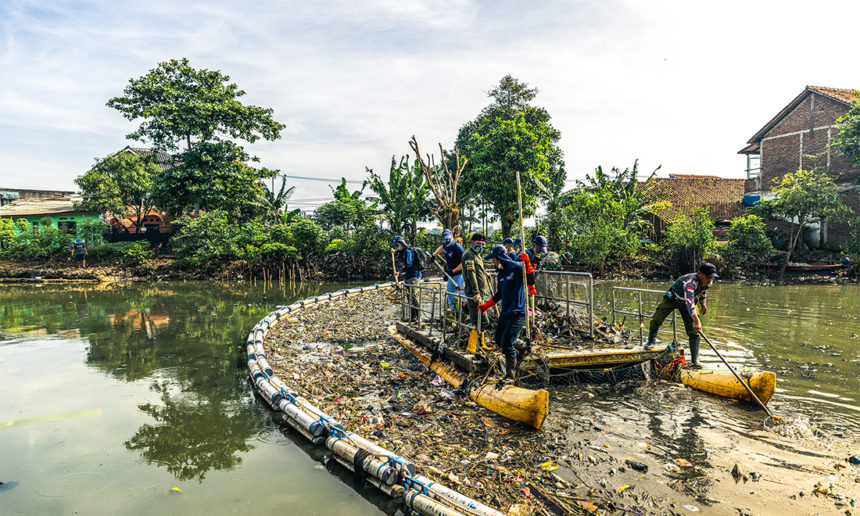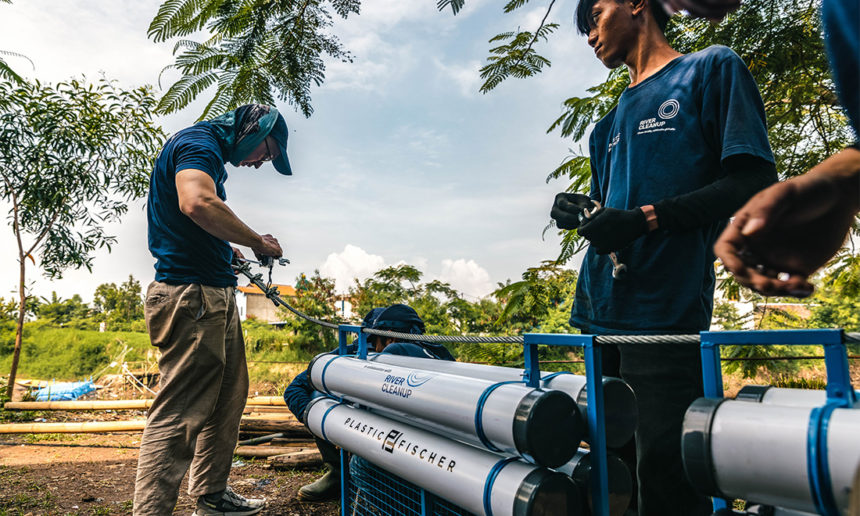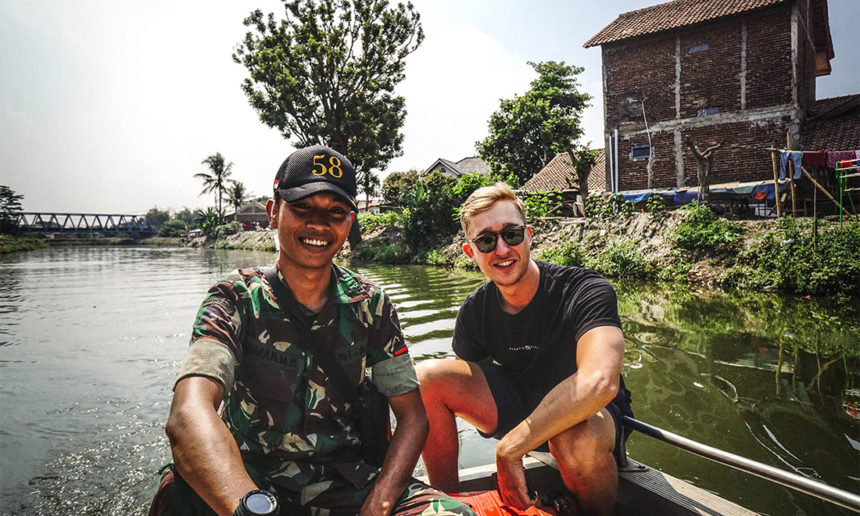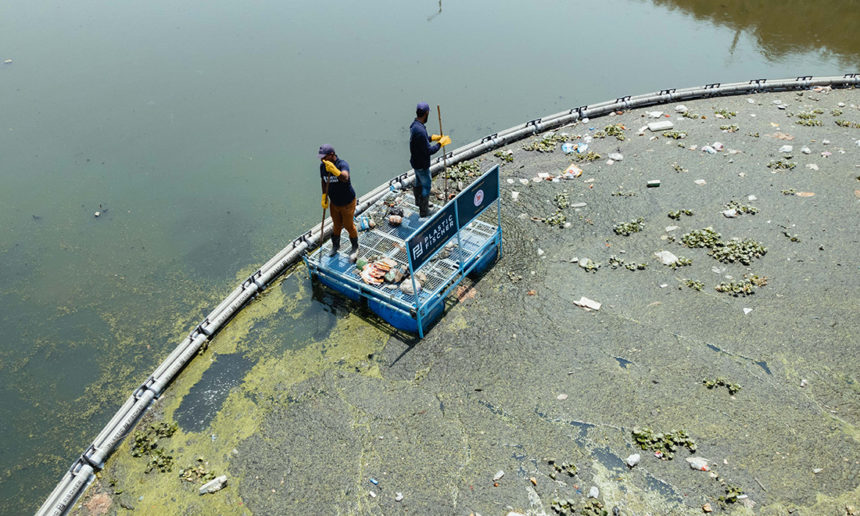Fighting river plastic with a low-tech, open-source technology and an innovative funding scheme
Plastic Fischer is a young, agile startup from Germany which pioneers innovative schemes to collect river plastic in countries with a poor waste management infrastructure. The idea is to build a scheme, that allows local initiatives anywhere in the world to collect river plastic. The first schemes have been successfully tested in Bandung (Indonesia) and Bangalore (India); the next pilot is being prepared for Ho Chi Min City (Vietnam).
We support Plastic Fischer because we believe that their approach perfectly matches with our values, for three reasons:
- About 80% of ocean plastic has been washed into the sea via one of the approximately 1600 polluted rivers. With its focus on river plastic, Plastic Fischer tackles the problem where it can be done most effectively. It is much more effective to prevent plastic from entering the oceans than to collect it out of the sea later on.
- Even though set-up as a corporate, Plastic Fischer follows an open-source approach. The construction plans of their TrashBooms can be downloaded for free on the website. The rationale: No one in the world can solve the problem alone. The more local initiatives use the technology, the more plastic is prevented from entering the oceans. The TrashBooms are designed that they can be produced low-cost locally directly where they are needed.
- In many countries there is an informal sector through which PET bottles, for example, are collected and sold already today. The used bottles have a market value and therefore locally recycling schemes have evolved by themselves. The question is: What about all the other plastic waste which cannot be recycled at cost? This is where Plastic Fischer comes into place. The company develops third-party verified “Plastic Credits” to be sold to corporates who like to off-set their negative plastic balance in order to reach a net zero target. Each plastic credit represents one ton of plastic that has been recovered from rivers and recycled or, where this is not possible, used to produce energy..
Thanks to your search with Gexsi, we can support PlasticFischer by joining their Plastic Fischer Club.
The video shows how Plastic Fischer works:
Our impact rating
Give us feedback!
How do you like the project? Answer two questions and provide us with an instant feedback!
Use our digital tool and score the project yourself!
By filling out the impact scorecard, you help us to steadily improve our expert evaluation. You can also download the scorecard and rate any project or discuss it in a group.
How does the score come about?
Each category is comprised of three questions which are scored on a scale from 0 (“does not apply at all”) to 10 points (“a true game-changer”). The score is then converted into percentages. You can learn more about what is important to us on our selection criteria page.
Plastic Fischer’s contribution to the 17 Global Goals
Life below water
Plastic Fischer prevents River Plastic from washing into the oceans and thus protects rivers and marine ecosystems
Industry, innovation and infrastructure
Developing an open-source approach to disseminating efficient River Plastic reduction technologies around the world
Responsible consumption and production
Reuse of raw materials that until now have ended up as waste in the sea. Plastic Fischer contributes to a circular economy in places where this is particularly challenging.
Decent work and economic growth
Creation of new, secure jobs in low-income regions where the waste sector is often only informally organised
Partnerships for the goals
Engaging the corporate sector by offering “Plastic Credits” as well as the Plastic Fischer Club to help the transition to a net zero economy.
Clean water and sanitation
Cleaning up rivers as an important source of water for cities and communities. Removing waste is a first step on which further initiatives to improve water quality can build
Sustainable cities and communities
Contribute to the solution of the waste problem by recycling and, where appropriate, using plastic waste for energy
Images
Your Feedback
How do you like the project? Give us some feedback!






